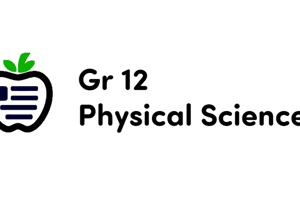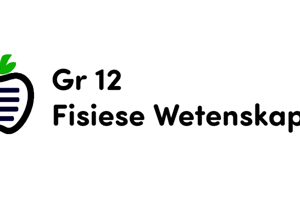Podcast
Questions and Answers
What is the volume of 1.25 moles of CO2 produced from 1.25 moles of methane at STP?
What is the volume of 1.25 moles of CO2 produced from 1.25 moles of methane at STP?
- 50 dm-3
- 22.4 dm-3
- 34.4 dm-3
- 28 dm-3 (correct)
How many moles of oxygen are required for the complete combustion of 2 moles of carbon disulphide (CS2)?
How many moles of oxygen are required for the complete combustion of 2 moles of carbon disulphide (CS2)?
- 6 moles (correct)
- 4 moles
- 2 moles
- 3 moles
If 900 dm-3 of H2S is completely combusted, what is the volume of SO2 produced?
If 900 dm-3 of H2S is completely combusted, what is the volume of SO2 produced?
- 900 dm-3 (correct)
- 1350 dm-3
- 450 dm-3
- 1800 dm-3
What is the volume of oxygen gas required at STP for burning 900 dm-3 of H2S?
What is the volume of oxygen gas required at STP for burning 900 dm-3 of H2S?
How much volume does 25 moles of CO2 occupy at room temperature and pressure (RTP)?
How much volume does 25 moles of CO2 occupy at room temperature and pressure (RTP)?
What is the volume of SO2 produced from burning 900 dm-3 of H2S?
What is the volume of SO2 produced from burning 900 dm-3 of H2S?
For the combustion of 25 moles of methane, how many moles of CO2 are produced?
For the combustion of 25 moles of methane, how many moles of CO2 are produced?
What does the mole ratio in a chemical reaction represent?
What does the mole ratio in a chemical reaction represent?
What is the theoretical yield of SiC when 100 kg of sand is reacted?
What is the theoretical yield of SiC when 100 kg of sand is reacted?
What is the percentage yield of SiC when 51.4 kg is produced?
What is the percentage yield of SiC when 51.4 kg is produced?
Which of the following separation techniques can lead to a decrease in actual yield if not performed properly?
Which of the following separation techniques can lead to a decrease in actual yield if not performed properly?
How much SiC can theoretically be produced from 100 kg of sand in the reaction?
How much SiC can theoretically be produced from 100 kg of sand in the reaction?
How many moles of oxygen are present in a volume of 50 dm³ at STP?
How many moles of oxygen are present in a volume of 50 dm³ at STP?
How many moles of oxygen are consumed when 3.5 moles of methanol are burned?
How many moles of oxygen are consumed when 3.5 moles of methanol are burned?
How many moles of water are produced from the combustion of 3.5 moles of methanol?
How many moles of water are produced from the combustion of 3.5 moles of methanol?
What is the purpose of determining the empirical formula of a compound?
What is the purpose of determining the empirical formula of a compound?
What is the atomic mass contribution of Carbon in glucose (C6H12O6)?
What is the atomic mass contribution of Carbon in glucose (C6H12O6)?
In the context of determining the empirical formula, which step follows after calculating the percentage of each element?
In the context of determining the empirical formula, which step follows after calculating the percentage of each element?
If an organic compound yielded 3.002 g of CO2 upon combustion, what is the mass of carbon in that CO2?
If an organic compound yielded 3.002 g of CO2 upon combustion, what is the mass of carbon in that CO2?
What is the percentage of hydrogen in glucose based on its molecular formula?
What is the percentage of hydrogen in glucose based on its molecular formula?
What is represented by the molecular formula of a compound?
What is represented by the molecular formula of a compound?
Which step in determining the empirical formula involves dividing by the least number?
Which step in determining the empirical formula involves dividing by the least number?
What is the percentage of oxygen in the compound calculated as 100 − [% of C + % of H]?
What is the percentage of oxygen in the compound calculated as 100 − [% of C + % of H]?
What is the empirical formula obtained from the mole ratio 2:5:1?
What is the empirical formula obtained from the mole ratio 2:5:1?
Given a molecular mass of 110.15 g/mol and an empirical formula mass of 55.05 g/mol, what is the value of n used to derive the molecular formula?
Given a molecular mass of 110.15 g/mol and an empirical formula mass of 55.05 g/mol, what is the value of n used to derive the molecular formula?
In the reaction of hydrogen and oxygen to produce water, what is the limiting reactant when 2 moles of H2 and 1 mole of O2 are present?
In the reaction of hydrogen and oxygen to produce water, what is the limiting reactant when 2 moles of H2 and 1 mole of O2 are present?
If the empirical formula is C3H3O, what is the molecular formula when n is determined to be 2?
If the empirical formula is C3H3O, what is the molecular formula when n is determined to be 2?
Which element is present in the highest percentage in the initial combustion analysis?
Which element is present in the highest percentage in the initial combustion analysis?
What is the empirical formula mass calculated for the empirical formula C3H3O?
What is the empirical formula mass calculated for the empirical formula C3H3O?
In the balanced equation 2H2 + O2 → 2H2O, how many grams of water are produced from 2 moles of hydrogen?
In the balanced equation 2H2 + O2 → 2H2O, how many grams of water are produced from 2 moles of hydrogen?
What is the limiting reactant when 20g of Al and 30g of S are used in the reaction 2Al + 3S → Al2S3?
What is the limiting reactant when 20g of Al and 30g of S are used in the reaction 2Al + 3S → Al2S3?
How many moles of Al2S3 can be produced from 30g of S?
How many moles of Al2S3 can be produced from 30g of S?
If 0.313 moles of Al are unreacted, what is the mass of Al left after the reaction?
If 0.313 moles of Al are unreacted, what is the mass of Al left after the reaction?
What is the mass of the excess reactant Al after the reaction with S?
What is the mass of the excess reactant Al after the reaction with S?
In the reaction 2Al + 6HBr → 2AlBr3 + 3H2, how many moles of Al would react with 9.92 moles of HBr?
In the reaction 2Al + 6HBr → 2AlBr3 + 3H2, how many moles of Al would react with 9.92 moles of HBr?
How many moles of Al remain unreacted when 6.44 moles of Al are mixed with HBr?
How many moles of Al remain unreacted when 6.44 moles of Al are mixed with HBr?
What is the molar mass of Al2S3, given the atomic masses of Al=27 and S=32?
What is the molar mass of Al2S3, given the atomic masses of Al=27 and S=32?
What is the total mass of the product Al2S3 produced when 20g of Al reacts completely?
What is the total mass of the product Al2S3 produced when 20g of Al reacts completely?
Flashcards are hidden until you start studying
Study Notes
Volume-Volume Relationship at STP
- 1 mole of any gas at Standard Temperature and Pressure (STP) occupies 22.4 dm3
- Volume of any gas at STP is directly proportional to the number of moles
- CO2 produced by complete combustion of 1.25 moles of CH4 is 28 dm3
Combustion of Carbon Disulphide
- 1 mole of CS2 reacts with 3 moles of O2 at STP
- 2 moles of CS2 reacts with 6 moles of O2 at STP
- The volume of 6 moles of O2 at STP is 134.4 dm3
Combustion of Hydrogen Sulphide
- 2 dm3 of H2S reacts with 3 dm3 of O2 at STP
- 900 dm3 of H2S will react with 1350 dm3 of O2 at STP
- 2 dm3 of H2S produces 2 dm3 of SO2 at STP
- 900 dm3 of H2S will produce 900 dm3 of SO2 at STP
Combustion of Methane at RTP
- 1 mole of any gas at Room Temperature and Pressure (RTP) occupies 24 L (dm3)
- 25 moles of CH4 combust to produce 25 moles of CO2
- The volume of 25 moles of CO2 at RTP is 600 dm3
Mole Ratio
- Mole ratio indicates the number of moles of reactants and products in a balanced chemical equation
- 2 moles of CH3OH react with 3 moles of O2 to produce 2 moles of CO2 and 4 moles of H2O
- When 3.5 moles of methanol are burned, 5.25 moles of oxygen are consumed and 7 moles of water are produced
Percentage Composition
- Percentage by mass of an element in a compound is calculated by dividing the atomic mass of the element by the molecular mass of the compound and then multiplying by 100
- Percentage composition of C6H12O6 is 40% for C, 6.6% for H, and 53% for O
Empirical and Molecular Formula
- Empirical formula: Simplest whole-number ratio of atoms in a molecule
- Molecular formula: Actual number and types of atoms present in a molecule
- 5 steps for determining empirical formula:
- Element detection
- Mass of each element
- Percentage of each element
- Mole ratio of each element (percentage divided by atomic mass)
- Atomic ratio (mole ratio divided by the smallest mole ratio)
Empirical and Molecular Formula of an Organic Compound
- Combustion analysis of an organic compound containing C, H, and O yielded 3.002g CO2 and 1.640g H2O
- The empirical formula is C2H5O
- The molecular mass of the compound is 110.15 g/mol, leading to a molecular formula of C6H6O2
Limiting Reagent
- Limiting reagent: Reactant that produces the least amount of product and therefore controls the amount of the product formed.
- 2 moles of H2 react with 1 mole of O2 to produce 2 moles of H2O
- In the reaction of 20g Al with 30g S to form Al2S3, Sulphur is the limiting reagent
- Excess reactant is the reactant present in an amount greater than that required to react completely with the limiting reagent
Percentage Yield
- Actual yield: Amount of product obtained in a reaction
- Theoretical yield: Amount of product expected to be formed based on the stoichiometry of the reaction
- Percentage yield is the ratio of actual yield to theoretical yield multiplied by 100
Thermal Decomposition of KClO3
- The thermal decomposition of 490g of KClO3 produces 0.223 moles of O2
- The number of molecules of O2 produced is 1.34 * 1023 molecules.
Studying That Suits You
Use AI to generate personalized quizzes and flashcards to suit your learning preferences.




